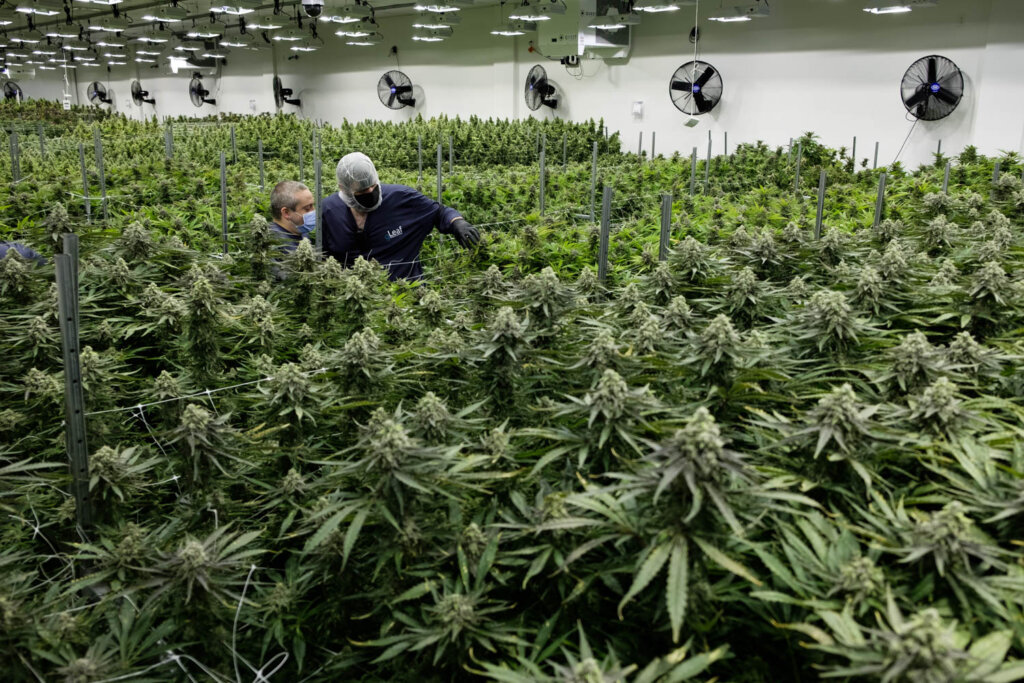Discover Weed in Ploiești: A Glimpse into Cannabis Culture in Romania’s Historic City

Though Romania maintains a strict legal framework that criminalizes drug use, cannabis has still found its way into the social fabric of various Romanian cities, including Ploiești on discover weed in Ploiesti.
This article takes a closer look at the cannabis culture in Ploiești, exploring the ways in which cannabis is consumed, the social dynamics surrounding its use, the legal challenges users face, and the evolving conversation on cannabis legalization in Romania on discover weed in Ploiesti.
Cannabis Laws in Romania
Cannabis, like all illicit drugs, is illegal in Romania. The government’s stance on cannabis remains largely conservative, with a focus on protecting public health and maintaining strict control over drug-related activities on discover weed in Ploiesti.
Despite this strict legal framework, cannabis use continues to be a reality in cities like Ploiești. The demand for cannabis remains high despite its illegal status, with people seeking ways to procure the substance, even if it means dealing with underground markets or illicit suppliers on discover weed in Ploiesti.
The Cannabis Scene in Ploiești on discover weed in Ploiesti
Young adults in particular are among the most frequent cannabis consumers in Ploiești. The city’s vibrant social life and youthful energy make it a fertile ground for alternative culture, including cannabis use on discover weed in Ploiesti.
Cannabis consumption in Ploiești typically takes place in private settings, away from public view, to avoid the legal repercussions associated with drug use. While the cannabis scene in Ploiești may not be as visible as in larger cities like Bucharest, the drug still plays a role in the social lives of a significant portion of the population on discover weed in Ploiesti.
Students, especially those attending local universities and high schools, are among the largest groups of cannabis users. Cannabis is seen by some as a way to alleviate stress, relax after studying, or socialize with friends. For others, it serves as a tool to escape from the pressures of modern life.
How Cannabis is Obtained in Ploiești
Street dealers are among the most common sources of cannabis in Ploiești. These individuals are often involved in informal, word-of-mouth transactions, with buyers seeking out trusted sources to obtain the drug.
Private parties, concerts, or gatherings in homes or private venues often have cannabis as part of the social experience.
Despite these underground sources of cannabis, the quality and reliability of what is available can vary.
Cannabis and Ploiești’s Social Dynamics on discover weed in Ploiesti
In Ploiești, cannabis has become a part of the city’s broader social culture, especially among the younger generation.
However, the presence of cannabis in Ploiești also raises questions about the stigmatization of drug use in Romania. While some people see cannabis as a benign recreational substance, others view it with disdain and disapproval.
Legal and Social Risks of Cannabis Use on discover weed in Ploiesti
Cannabis use in Ploiești, like in the rest of Romania, carries significant legal risks. Romanian law strictly criminalizes the possession, use, and distribution of cannabis. Romania’s tough stance on drug use means that cannabis users must exercise caution and discretion when partaking in the substance.
The legal risks are compounded by the social stigma that cannabis users face in Romania. As a result, cannabis users may face judgment, isolation, or discrimination if their habits are discovered.
Additionally, those who are caught with cannabis in Ploiești can face serious consequences. Depending on the amount of cannabis in their possession, individuals can be charged with possession, trafficking, or even cultivation.
The Future of Cannabis in Ploiești and Romania
The future of cannabis use in Ploiești, and Romania as a whole, is uncertain. While the current legal framework remains restrictive, the global trend toward cannabis decriminalization and legalization may eventually influence Romanian policy.
Public opinion on cannabis is gradually shifting, and there is growing support for reforming drug laws.
In Ploiești, the cultural and social dynamics surrounding cannabis may shift as younger generations become more vocal in their support for cannabis reform. As attitudes continue to evolve, the future of cannabis in the city may mirror the broader trends in Romania, where cannabis use may eventually be treated more like alcohol or tobacco—regulated but no longer criminalized.
Conclusion
Cannabis use in Ploiești, while illegal, remains a hidden yet persistent part of the city’s social life. As younger generations seek alternative ways to relax, socialize, and explore new experiences, cannabis has carved a space for itself in the cultural landscape of the city.

When it comes to marijuana products, ScentHub offers an extensive selection of some of the highest quality items I’ve come across. I’ve tried a variety of strains, edibles, and concentrates, and the quality has consistently been outstanding. The flowers are always fresh, fragrant, and potent. I’ve had the chance to try both Sativa and Indica strains, and the effects have been exactly as described. Contact them on email: Scenthub43@gmail.com and also there Telegram : t.me/Scenthub43
Wow they have an option for me. The variety in their selection means that no matter my experience level, I’ll find a product that fits my needs. highly recommended .
I can say without hesitation that ScentHub has earned my loyalty. From the quality of the products to the exceptional customer service.

I’ve had a number of experiences where edible products don’t quite deliver the promised effects or leave an unpleasant aftertaste, but that’s not the case with ScentHub. The gummies, chocolates, and drinks I’ve tried have all been potent, flavorful, and consistently effective. The packaging is also informative, making it easy to understand the dosage and what to expect from each edible, Thank you !!!
They also don’t pressure you into buying anything you’re not ready for, which is a huge relief. It feels more like a conversation with a trusted friend rather than a hard sell. highly recommended!!